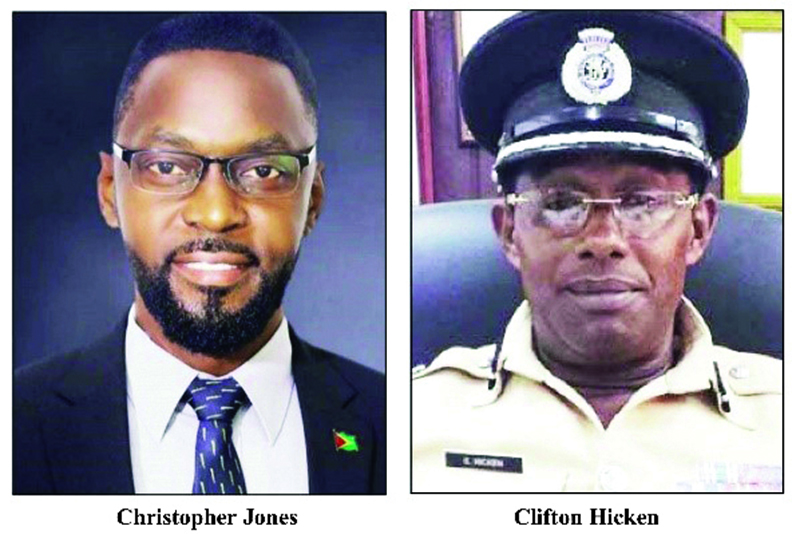Acting Chief Justice Roxane George SC has set July 20 for arguments in the action filed by APNU+AFC Chief Whip Christopher Jones, who is challenging the appointment of Clifton Hicken as acting Commissioner of Police.
At a hearing on Friday afternoon, there was a brief but heated exchange between Attorney General Anil Nandlall SC, who asked the Court for an opportunity to file an affidavit in defence, and Senior Counsel Roysdale Forde, who vigorously opposed that application.
Forde’s contention was that the State was beyond the legal time-limit in which such an affidavit should have been filed and he noted that what the AG was essentially attempting to do was rely on documents being filed way after Hicken’s controversial March 30 appointment.
Forde advanced that the filing of such documents at the current stage of the proceedings would have no relevance.
Nandlall, in response, however, sought to contend that the case raises important legal issues which need final determination by the Court.
It is against this background, he said, that he needed an opportunity to file a defence, which he said is the only means through which he can establish a factual foundation for canvassing the legal issues he intends to raise.
The Chief Justice agreed with Forde that an affidavit in defence was irrelevant, but nonetheless said that the Court would grant the request, though she set very short, rigid timelines within which the affidavit is to be filed. The Judge did caution Nandlall, however, that if the Court does find his affidavit to be irrelevant, he will have to pay costs in the sum of $50,000, to which he agreed.
Justice George made it clear that the Court will not be entertaining any ex post facto material.
Nandlall has been given no later than Monday, July 11, to file his affidavit. Forde then has two day thereafter to reply if necessary.
Arguments were then set for July 20 at 10am.
In his Fixed Date Application, Jones contends that the invocation of the Doctrine of Necessity for Hicken’s appointment was unreasonable and ultra vires. He also contends that the appointment violates Article 211(1) and 211(2) of the Constitution.
Jones is seeking a number of declarations, including that the invocation of the Doctrine of Necessity to appoint Hicken as acting Commissioner of Police is unreasonable, ultra vires the Constitution, Common Law and is illegal, null, void and of no legal effect.
Further, Jones is seeking a declaration that there was no consultation between President Irfaan Ali and the Leader of the Opposition as is required and contemplated by the Constitution prior to the appointment.
The AG’s argument has been in part that the appointment had to be done out of necessity for security and other reasons, and that there was also at the time no Opposition Leader in place with whom the President could have consulted.
Jones’ argument has been that Guyana had effectively been without a constitutionally appointed Commissioner of Police since May 1, 2021, but that Ali appointed Hicken as acting Commissioner of Police without any requisite consultation and then improperly sought recourse to the Doctrine of Necessity.
Jones argued that the common law doctrine of necessity was not available in those circumstances. In his affidavit in support of his application, Jones said that in the Guyana context, history has shown that where there exists a sitting Deputy Commissioner the acting appointment would have taken place based on seniority.
Jones deposed that the absence of a Leader of the Opposition and a Police Service Commission as the stated basis on which the President said he acted in March 2022 when he appointed Hicken, is not borne out in light of his actions between August 3rd, 2020 and January 25th, 2022.
Jones argued that the refusal to “meaningfully consult” with the then Leader of the Opposition, between August 03, 2020 and January 26, 2022 on vacancies in several constitutional offices and the insistence that the Opposition must “recognize” the government before any consultation or meeting could take place has a meaningful impact on how the exercise of the purported necessity has to be evaluated and analyzed.






